Claudio Tomazzoli
Department of Computer Science, University of Verona
Applications of Linear Defeasible Logic: combining resource consumption and exceptions to energy management and business processes
Aug 14, 2019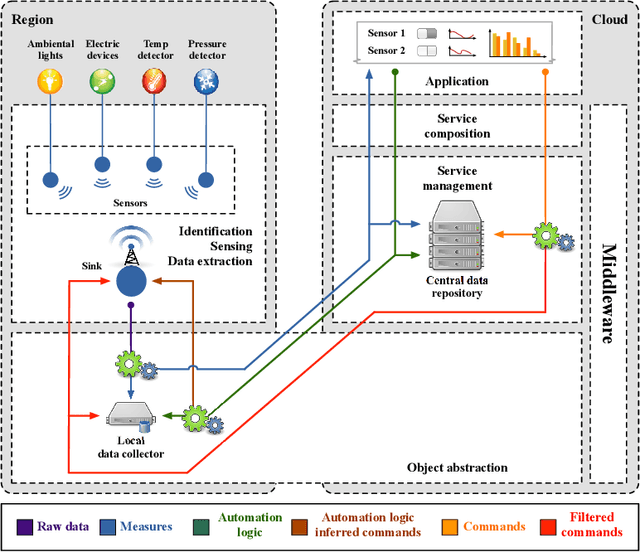
Abstract:Linear Logic and Defeasible Logic have been adopted to formalise different features of knowledge representation: consumption of resources, and non monotonic reasoning in particular to represent exceptions. Recently, a framework to combine sub-structural features, corresponding to the consumption of resources, with defeasibility aspects to handle potentially conflicting information, has been discussed in literature, by some of the authors. Two applications emerged that are very relevant: energy management and business process management. We illustrate a set of guide lines to determine how to apply linear defeasible logic to those contexts.
* In Proceedings DICE-FOPARA 2019, arXiv:1908.04478. arXiv admin note: substantial text overlap with arXiv:1809.03656
It could be worse, it could be raining: reliable automatic meteorological forecasting
Feb 08, 2019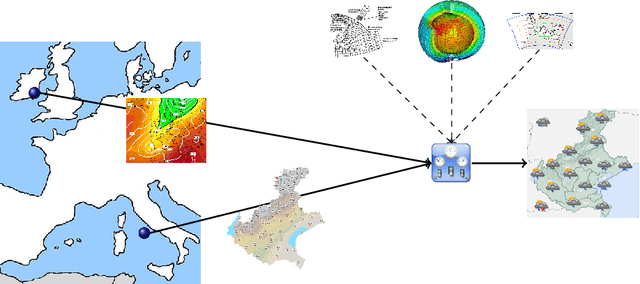
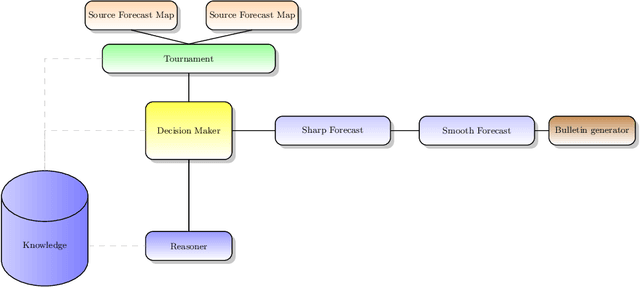
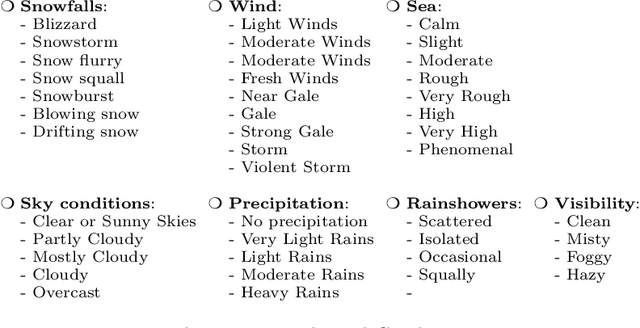
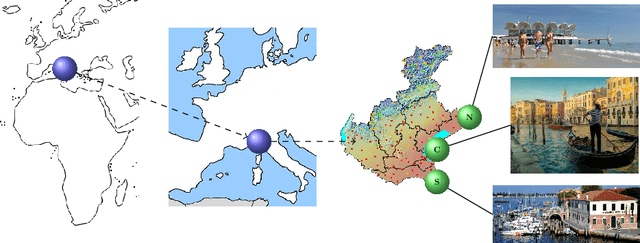
Abstract:Meteorological forecasting provides reliable prediction about the future weather within a given interval of time. Meteorological forecasting can be viewed as a form of hybrid diagnostic reasoning and can be mapped onto an integrated conceptual framework. The automation of the forecasting process would be helpful in a number of contexts, in particular: when the amount of data is too wide to be dealt with manually; to support forecasters education; when forecasting about underpopulated geographic areas is not interesting for everyday life (and then is out from human forecasters' tasks) but is central for tourism sponsorship. We present logic MeteoLOG, a framework that models the main steps of the reasoner the forecaster adopts to provide a bulletin. MeteoLOG rests on several traditions, mainly on fuzzy, temporal and probabilistic logics. On this basis, we also introduce the algorithm Tournament, that transforms a set of MeteoLOG rules into a defeasible theory, that can be implemented into an automatic reasoner. We finally propose an example that models a real world forecasting scenario.
 Add to Chrome
Add to Chrome Add to Firefox
Add to Firefox Add to Edge
Add to Edge